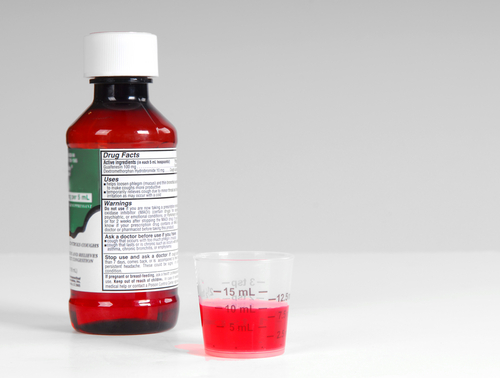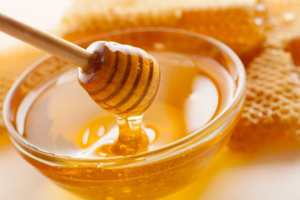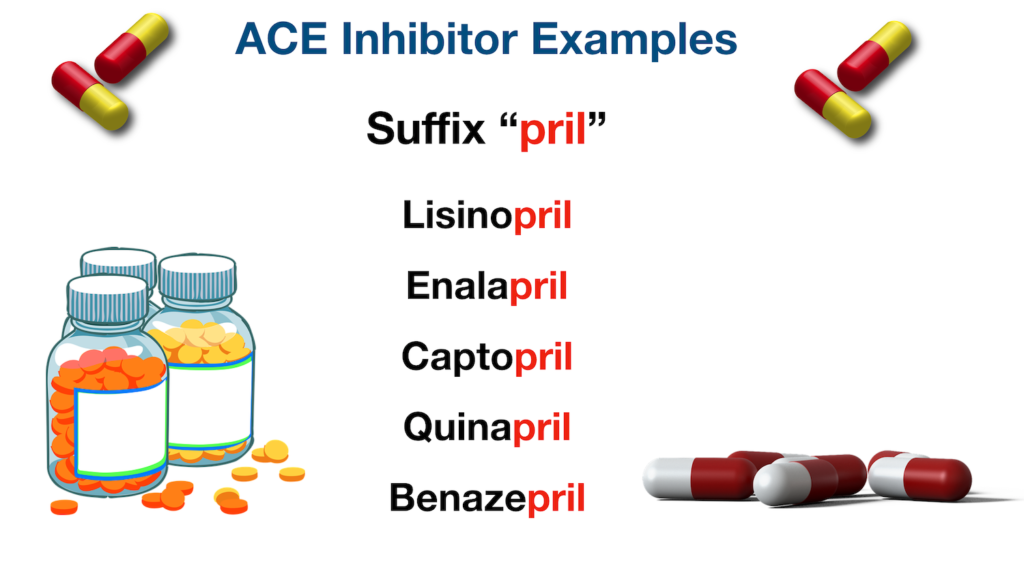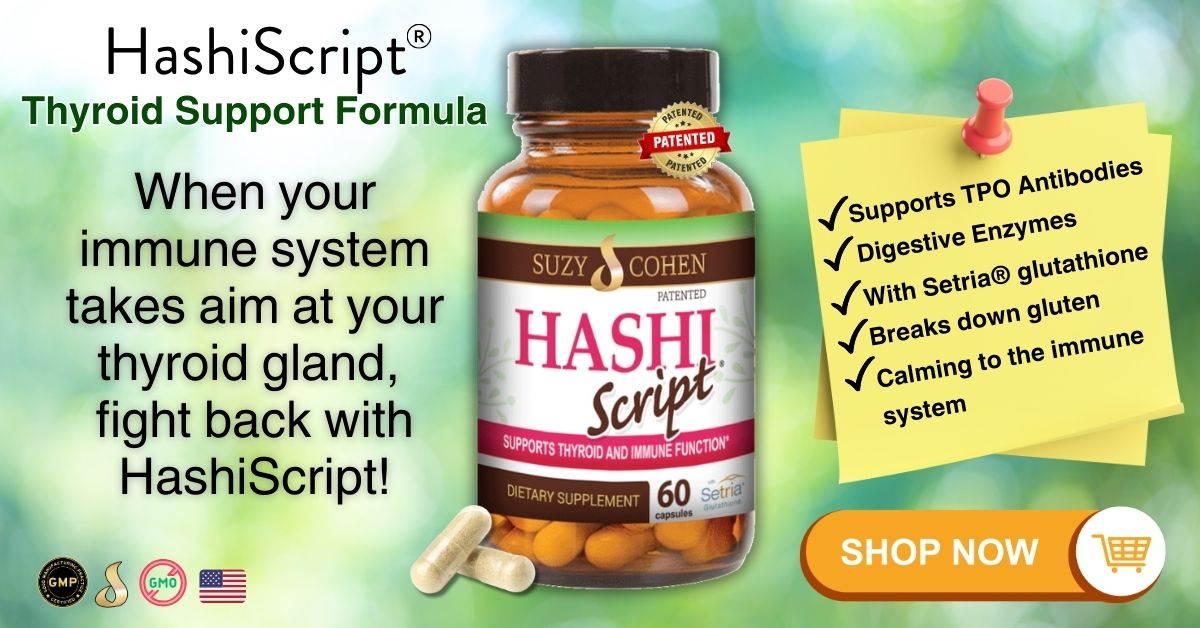What's On This Page?
ToggleNatural cough suppressants abound, and yet most people don’t know about them. I was reminded of this, and prompted to write this blog after hanging up with my friend Tom in California, who could barely speak to me on the phone. We were trying to plan a meeting at a trade show, and he was hacking every 5 seconds, unable to finish a sentence! I told him to drink a shot of whiskey and take a Claritin®.
I also told him to take a capsule or two of my Immune Script® since he already had it, and it contains L-cysteine and other goodies for immune function.* It often knocks you out from the Skullcap too, so I promised Tom he’d get a good night’s sleep tonight! The next day I sat down to write this so you too would have information on natural cough suppressants. There are many – I’ll go over the top 10 most effective natural cough suppressants now.
You’ll be amazed to learn that some types of coughs respond better to antihistamines versus cough suppressants. Let’s get right into it because your chest may be hurting as we speak, and I want to help you!
Introduction
Coughing, a reflex action to clear the throat of mucus or foreign irritants, affects millions globally. An often-cited statistic reveals that acute cough, the most frequent illness in primary care, accounts for over 30 million doctor visits annually in the United States alone.
While coughs can be a common symptom of a wide range of respiratory conditions, their persistence without proper management can lead to complications, including chronic bronchitis or secondary infections. This article aims to delineate natural cough suppressants, backed by scientific data, to offer relief and highlight the necessity of distinguishing the underlying causes of a cough for effective treatment.
If you don’t treat a chronic cough in time, your chest will hurt, and maybe even your ab muscles. You could get a complication called costochondritis which is an inflammation of the cartilage near your sternum (breastbone). It is painful and causes sharp pain sometimes worrisome because you start to think you’re having a heart attack! The pain from costochondritis can be exacerbated by certain activities, such as coughing, deep breathing, or physical movement… even turning in bed at night… it all puts more stress on your ribcage.
Upper respiratory infections cause repeated coughing which can cause costochondritis as a complication. It goes away on its own so don’t worry. This benign condition (albeit painful) usually responds to palliative things like heat, or ice appications, rest and ibuprofen (NSAIDs). People will frequently suffer through weeks of coughing, but the costochondritis is often what gets a person to go to the urgent care center! That’s when they auscultate you! I’ll explain that shortly.
The Type of Cough Matters
Understanding Cough Types: Post-Nasal Drip vs. Chest Cough
Distinguishing between a cough caused by post-nasal drip and one originating from the chest is crucial for effective treatment. Post-nasal drip, often triggered by allergies or sinus infections, leads to throat clearing and coughing, which may respond well to antihistamines rather than traditional cough syrups. This usually surprises people, and it explains why taking Robitussin doesn’t always help… that drug is not an antihistamine so it doesn’t help post-nasal drip!
Conversely, a chest cough, associated with conditions like bronchitis, requires treatments that address the lungs and lower respiratory tract directly. This is where something like Robitussin might help, either with or without an antihistamine.
Also, there are two main types of coughs – I’ll keep it simple and graphic:
1. Productive Cough: It’s wet! You are producing phlegm and stuff is coming up. You have to spit.
2. Nonproductive Cough: It’s dry. You’re just hacking but not having to spit! Nothing’s coming out.

Dissecting Robitussin DM and Popular Cough Syrups
Guaifenesin and dextromethorphan are both active ingredients commonly found in over-the-counter (OTC) cough medications, but they work in different ways:
Guaifenesin is an expectorant. It works by thinning and loosening mucus in the airways, making it easier to cough up and clear out of the lungs. This can help relieve symptoms in conditions where mucus buildup is a problem, like colds and bronchitis. Guaifenesin is intended to make a cough more productive.
Dextromethorphan is a cough suppressant, or antitussive, that acts on the brain to reduce the urge to cough. It is useful in treating dry coughs that are non-productive and irritating. Dextromethorphan is chemically related to morphine, but it does not have the same pain-relieving effects and is not considered addictive at recommended dosages.
NAC is something I’ve mentioned in past writings. It converts to L-cysteine, an amino acid that has several medicinal benefits. It somewhat similar to guaifenesin in that it also helps you with mucus, but it works differently. It’s more of what I’d call a “mucolytic,” meaning it breaks down the bonds in mucus molecules, making the mucus less thick and viscous and easier to expel from your lungs. Simply put, it makes you spit up easier.
Additionally, and most importantly, L-cysteine has antioxidant properties and replenishes levels of glutathione, a key antioxidant in your body, which can help reduce inflammation in the lungs. While guaifenesin and NAC/L-cysteine both help manage mucus, they do so in different ways. Dextromethorphan, on the other hand, is used to suppress the cough reflex. You might be interested to know that it’s chemically related to morphine but without the narcotic side effects!

Doctors Perform Auscultation on You – Here’s Why
We’ve all had auscultation performed on us. It’s pronounced “w-skuhl-TAY-shuhn.” It’s where doc puts a stethoscope on your back, and your chest to listen to things. They’re cued in to listen to the sounds produced happening in your body to help diagnose your problem.
They’re trying to hear things like wheezing, crackles, or decreased breath sounds, which help them differentiate between a simple annoying cough and other respiratory conditions like asthma, pneumonia, or pulmonary fibrosis. Auscultation can ‘hear’ the heart and reveal murmurs, irregular heart rhythms, or other sounds that could indicate heart valve problems, heart failure, or congenital heart defects. Natural cough suppressants won’t work in this scenario.
Auscultation is important as part of an evaluation for chronic coughing. Let me go through to the best of my knowledge what the sounds mean, in case you have them:
Wheezing: Suggests narrowed airways, which can be seen in asthma or chronic obstructive pulmonary disease (COPD).
Crackles (or rales): Can indicate fluid in the lungs, seen in conditions like pneumonia or heart failure.
Rhonchi: Suggests the presence of mucus in the larger airways, more common in bronchitis or cystic fibrosis.
Stridor: A high-pitched sound due to upper airway obstruction, which could occur with croup or a choking situation.

The Natural Cough Suppressants
Here are 10 effective and natural cough suppressants. I’ll briefly explain how you can find them, use them safely and provide a warning if it applies.
- Honey: Nature’s Antitussive Obtain pure, raw honey from health food stores or local farmers’ markets. For cough relief, consume a tablespoon of honey straight, or mix it into warm water or herbal tea before bedtime. Ensure it’s not given to children under one year due to the risk of botulism.
- Thyme: The Expectorant Herb Fresh or dried thyme can be found in the spice section of most supermarkets. To use, steep 2 teaspoons of thyme leaves in a cup of boiling water for 10 minutes, strain, and drink. Thyme tea bags are also available for convenience.
- Licorice Root: The Soothing Agent Licorice root tea can be purchased from health food stores or online. Ensure you choose a product labeled as DGL (deglycyrrhizinated licorice) if you have high blood pressure, as the glycyrrhizin in standard licorice can exacerbate hypertension.
- Ginger: The Anti-inflammatory Powerhouse Fresh ginger root is readily available in grocery stores. Slice or grate it into boiling water, steep for at least 5 minutes, and add lemon or honey to taste for a soothing tea. Ginger supplements are also available but consult a healthcare provider for appropriate dosing.
- Pineapple: Bromelain’s Mucolytic Effect Fresh pineapple is widely available in the produce section of grocery stores. Eat it raw or blend it into a smoothie. Bromelain supplements are another option, especially for those looking for a more concentrated form, but should be used under the guidance of a healthcare professional.
- Marshmallow Root: The Mucosal Protector Marshmallow root can be found as dried herb or in tea form at health food stores. For tea, steep 1 tablespoon of the dried root in hot water for 10 to 15 minutes. Marshmallow lozenges are also available and can provide quick throat relief. I have this VIDEO on how to make it.
- Eucalyptus: Antioxidant-Rich Relief Eucalyptus oil should be used with care; purchase it from reputable health food stores or online retailers. Add a few drops to a bowl of hot water and inhale the steam for congestion relief. Eucalyptus lozenges and teas are also beneficial and offer a safer method of ingestion.
- Slippery Elm: The Throat Coating Slippery elm is available in bulk herb form, lozenges, and capsules. For tea, mix 1 tablespoon of the powdered bark with hot water. Slippery elm lozenges are a convenient alternative for soothing coughs on the go.

- Peppermint: The Natural Decongestant Fresh peppermint leaves, peppermint tea, and peppermint oil are widely available. For tea, steep fresh or dried leaves in boiling water. Use peppermint essential oil by adding a few drops to a diffuser or inhaling steam from a bowl of hot water mixed with the oil. Peppermint lozenges can also offer relief for sore throats and coughs. You might like my other article, Peppermint is a Cool Solution for Irritable Bowel Syndrome.
- L-cysteine or N.A.C. (N-Acetyl Cysteine): The Mucus Modifier N-Acetyl Cysteine (N.A.C.), a supplement form of the amino acid L-cysteine, is renowned for its ability to thin mucus, making it easier to clear from the respiratory tract. I found this positive STUDY published in 2023 posted on Pubmed, where researchers said, “NAC may be able to reduce acute exacerbations of COPD through an antioxidant effect. “ This antioxidant thins mucus and may be useful for other lung conditions but check with your doctor because once in a blue moon, it can trigger bronchospasm in sensitive asthmatic patients.That said, sometimes it helps them… so you just have to know what’s right for you! We are all unique. Once you take it, N.A.C. is broken down into L-cysteine within the body, which then acts to replenish the most powerful antioxidant in the human lung, glutathione. This process not only aids in breaking down mucus but also enhances the body’s defense against respiratory infections and reduces inflammation. Now you understand why I put it into my formula, Immune Script®
- Alcohol: A Traditional Remedy with Caution Moderate consumption of alcohol, particularly whiskey or vodka mixed with honey, serves as a folk remedy for cough relief. Its warmth and antimicrobial properties can offer temporary soothing effects, though this should be approached with caution due to potential health risks and contraindications with certain medications.
I’ve tried this for a flu-related cough, and it works great… in fact many prescription cough syrups are made with a base of alcohol. But to be clear, I’m talking about tiny sips, not chugging it until you’re hammered!
The differentiation between cough types and the judicious use of natural remedies provide a foundation for managing coughs effectively. However, it’s imperative to consult healthcare professionals before trying new treatments, especially in persistent or severe cases. Natural cough suppressants can offer relief and complement conventional treatments, but understanding the root cause of a cough is paramount to ensuring appropriate care and prevention of complications.

Coughing Can Be a Drug-induced Side Effect
What is an ACE Inhibitor? ACE inhibitors are a type of medication that helps relax your blood vessels, which lowers your blood pressure and makes it easier for your heart to pump blood. “ACE” stands for Angiotensin-Converting Enzyme, an enzyme in your body that is involved in producing a substance that narrows blood vessels. By inhibiting this enzyme, ACE inhibitors reduce the production of this substance, thereby widening your blood vessels.
Some examples are enalapril and lisinopril. Did you know that, How Grape Juice Helps Shortness Of Breath And Heart Disease.
Why Do They Cause a Cough? The mechanism behind the cough is relatively straightforward but involves a bit of biology. When the ACE enzyme is inhibited, it doesn’t just affect the substance that narrows blood vessels – it also increases levels of another compound in your lungs called bradykinin.
Bradykinin is intended to help lower blood pressure by widening blood vessels, but it can also trigger the cough reflex. In the lungs, high levels of bradykinin can cause inflammation and stimulate the nerves that trigger coughing. This is why some people who take ACE inhibitors experience a persistent, dry cough.
What to Do About It? If you’re taking an ACE inhibitor and develop a dry, hacking cough, it’s important to talk to your doctor and ask him/her to switch out your blood pressure medication. There are many to choose from, many more options today than when I graduated as a pharmacist in 1989. You may do better on an angiotensin II receptor blocker (ARB), which typically does not cause a cough as a side effect.
I like ARBs better than beta blockers. But either way, always consult with a doctor before just stopping a prescription as some of them have to be weaned. That said, BP pills don’t have to be weaned usually, they can often be stopped – just check with doc about what you’re taking just to be safe.

Dry Coughing May Be Related to Thyroid Disease
I’ll elaborate more on this in a future article, but here I want you to know that low levels of thyroid hormone can cause a goiter sometimes. This is an enlargement of the thyroid gland. If the goiter is large enough, it could press on your windpipe (trachea) or esophagus, leading to symptoms like coughing, a feeling of tightness in the throat, or difficulty swallowing. I just want you to know this is a possibility.
When to See Your Doctor
- Duration: If your cough lasts more than three weeks without significant improvement, I’d visit a doctor. A persistent cough could be a sign of a chronic condition, such as asthma, chronic bronchitis, or other issues that won’t respond to natural cough suppressants.
- Severity and Symptoms: Seek immediate medical attention if your cough is severe, produces bloody or colored mucus (yellow, green, or brown), or is accompanied by symptoms such as high fever (over 100.4°F or 38°C), shortness of breath, chest pain, wheezing, or unexplained weight loss. These could indicate a serious infection like pneumonia or tuberculosis, or other significant health issues.
- Nighttime Coughing: If your cough worsens at night, it could be a sign of asthma or gastroesophageal reflux disease (GERD). A doctor can help diagnose the cause and provide appropriate treatment.
- Impact on Life: If your cough is affecting your daily life, sleep, or causing discomfort and embarrassment, it’s worth consulting a healthcare provider for potential treatments and strategies to manage it.
- Associated Conditions: Individuals with pre-existing conditions like heart disease, lung diseases (COPD, emphysema), or who are immunocompromised should see a doctor sooner when experiencing a new or worsening cough, as they are at higher risk for complications.
- Unexplained Symptoms: If your cough is accompanied by other unexplained symptoms, such as rash, swelling, or changes in your voice, it could indicate an underlying condition that requires medical evaluation. If you cough up something that is tinged pink, it’s time to put the vodka and Robitussin away, and see your doctor! If you have sharp chest pain, as in costochondritis like I mentioned at the outset of this article, it’s time to visit a doctor.
- Ineffectiveness of over-the-counter (OTC) Remedies: If you’ve tried OTC cough medicines or natural cough suppressants for a week without relief, a healthcare provider can offer prescription options or investigate for underlying causes.
Summary
Coughing is a natural reflex that plays a crucial role in protecting the lungs and clearing the airways of irritants, such as mucus, smoke, or dust. There are two main types of coughs: productive (wet cough) and non-productive (dry cough). A productive cough helps clear mucus from the lungs and is often seen in conditions like the common cold or bronchitis, while a dry cough may result from environmental irritants or underlying health issues, such as allergies or acid reflux.
Various treatments and remedies are available depending on the cause of the cough. Over-the-counter medications, natural cough suppressants like honey and ginger, and staying hydrated can all help soothe a cough. However, while coughs are almost always benign and self-limiting, they can sometimes be the first indicator of a more serious health issue. It’s always better to err on the side of caution and seek professional medical advice to ensure proper care and peace of mind.
Did you know that the speed of a human cough can reach up to 60 miles per hour? This rapid expulsion of air helps effectively clear the throat and airways but also highlights the importance of covering your mouth when you cough in order to prevent the spread of germs! It’s only polite, especially now in the post-pandemic age. Natural cough suppressants can help you control the frequency of coughing, so spread this blog to those in need.

Suzy Cohen, has been a licensed pharmacist for over 30 years and believes the best approach to chronic illness is a combination of natural medicine and conventional. She founded her own dietary supplement company specializing in custom-formulas, some of which have patents. With a special focus on functional medicine, thyroid health and drug nutrient depletion, Suzy is the author of several related books including Thyroid Healthy, Drug Muggers, Diabetes Without Drugs, and a nationally syndicated column.


